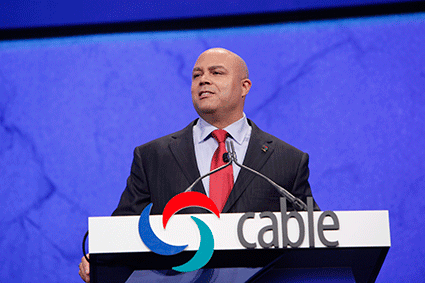Title II Rules Stand — What Happens Now?
The smarter way to stay on top of the multichannel video marketplace. Sign up below.
You are now subscribed
Your newsletter sign-up was successful

WASHINGTON — It wasn’t a big surprise to cable operators, but a federal court said last week that both cable and telco Internet-service providers had not met the strict standard for obtaining a stay of the June 12 effective date of the FCC’s Title II reclassification of Internet access as a common-carrier service.
The U.S. Court of Appeals for the D.C. Circuit’s decision meant the Federal Communications Commission’s three bright-line network-neutrality rules went into effect last Friday, so ISPs are now barred from blocking or throttling or paid prioritization.
ISPs weren’t complaining about those regulations — at least publicly — having already pledged to abide by them. Their stay request, which was more about the FCC using Title II as a justification for network neutrality, did not even include those rules.
FCC chairman Tom Wheeler was quick to bang the drum after the court ruled last Thursday (June 11). “This is a huge victory for Internet consumers and innovators!” he said in a statement (adding the exclamation mark). “Starting Friday, there will be a referee on the field to keep the Internet fast, fair and open.”
The National Cable & Telecommunications Association’s response was, essentially: Bring it on — in court.
“We are now ready to get to the merits of the case and are confident as ever that we will prevail,” the cable industry’s primary trade group said. NCTA lawyers had signaled they could lose the stay request, but that would not mean the industry group would lose the underlying case.
But for all the legal bravado, NCTA members are concerned about having to defend themselves against complaints about their business practices while the FCC figures out what won’t adversely impact an open Internet.
The smarter way to stay on top of the multichannel video marketplace. Sign up below.
Whatever ISPs thought about the bright-line rules — beyond seeing them as unnecessary — their real concern is about the FCC’s case-by-case review of interconnection agreements and anything the agency decides is actionable under a vague, “know-it-when-we-see it” general conduct standard, both of which also went into effect June 12.
NCTA president and CEO Michael Powell, in advance of the decision, told reporters that despite the FCC’s assertions that ISPs’ concerns were melodramatic, “I have heard that Cogent’s CEO said he would run in there the first chance he gets.
“I don’t know why we wouldn’t expect Netflix to run in there the first chance it gets,” Powell continued. “You’re going to tell me that public advocacy groups may not bring rate complaints?”
Then, there are the plaintiff’s lawyers, who can bring class-action suits on behalf of cable’s customers over rate or term violations.
“You’re telling me that no plaintiff lawyer out there is looking for a career?” Powell said, adding that he would not be comforted unless the FCC planned to tell all those would-be plaintiffs and complainers to stand down. But Powell has also been looking to the Hill for help and could just find it.
The leaders of the Senate Commerce Committee — Sens. John Thune (R.-S.D.), chairman, and Bill Nelson (D-Fla.), ranking member — both said they would work on legislation that would clarify the FCC’s network-neutrality regulatory authority. The NCTA is hoping that means supporting the bright-line rules without Title II while jettisoning the general conduct standard and applying net neutrality beyond the last mile to interconnections.
Elsewhere, the House Financial Services Subcommittee approved an amendment to an FCC budget bill that would prevent funding the implementation of the rules.
Contributing editor John Eggerton has been an editor and/or writer on media regulation, legislation and policy for over four decades, including covering the FCC, FTC, Congress, the major media trade associations, and the federal courts. In addition to Multichannel News and Broadcasting + Cable, his work has appeared in Radio World, TV Technology, TV Fax, This Week in Consumer Electronics, Variety and the Encyclopedia Britannica.

